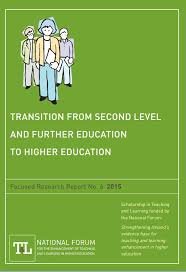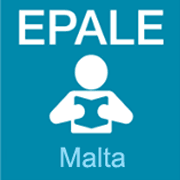Weekly Roundup
 Education for All
Education for All
How do we make sure that education is accessible for all children? As summer was coming to an end, most children went back to school or started school for the first time. Imagine if your child was unable to attend school last September, this is a reality for many migrant children who have arrived in the European Union over the recent years.
Read the full article here.
 New Cultural Heritage Toolkit
New Cultural Heritage Toolkit
The European Commission has created a new toolkit for teachers: Europe’s cultural heritage to classrooms. In the framework of the European year of Cultural heritage, the Commission aims to develop interactive activities to encourage students to discover and interact with their cultural heritage. Read more about the new toolkit here.
 European Vocational Skills Week 2018
European Vocational Skills Week 2018
Erasmus + projects have implemented new practices and policies with the aim of improving the acces and attractiveness of Vocational Education and Training (VET). The European Vocational Vet Skills week of 2018 is held in the week of 5 November with a closing event on the 9th. One of the high lights of the event will be the Awards for VET excellence, the best examples of VET will be showcased. The winners will be announced by Marianne Thyssen, European Commissioner for Employment, Social Affairs, Skills and Labour Mobility.
Read more about this event here.
 Research: Transition from Second Level and Further Education to Higher Education
Research: Transition from Second Level and Further Education to Higher Education
The research report on ‘Transition from Second Leven and Further Education to Higher Education’ is a research project conducted by the National Forum for the Enhancement of Teaching and Learning in Higher Education. The report examines the views of participating students on their transition from second level and further education into higher education. According to this report, there has been very little research conducted on this issue, thus making this a unique insight into the experience of transitioning students.
You can find the complete report here.
 Family Learning Survey
Family Learning Survey
According to EPALE it is generally agreed upon that participation in family learning results in a wide range of benefits for both children and parents. Family learning – parents and children learning together – is a well-established model of community learning. The impact of family learning is well documented by the Learning and Work institute, the Workers Educational Association and numerous other researchers. In recent months the Department for Education has been working with Learning and Work Institute, the National Family Learning Forum, the Family Learning Local Authorities Group (FLLAG) and others to create a framework of measures relating to the wider outcomes of family learning. The framework is divided into outcomes for adults and outcomes for children.
Read more here.
 EPALE Awards Ceremony Malta
EPALE Awards Ceremony Malta
The Directorate for Research, Lifelong Learning and Employability within the Ministry for Education and Employment hosted the EPALE Awards 2018 on the 23rd of October. The ceremony was a celebration of adult education initiatives and provided formal recognition of adult learners and adult educators. The award ceremony was organised with the aim to acknowledge the work being done in the area of adult education in Malta. The theme of improving lives of people, their family and the society was visible throughout the night. The winners of the night were, among others, Kris Muscat, Kim Micallef, Father Edgar Busuttil and Anna Grech.
Read more here.
 Home Education Policies in Europe
Home Education Policies in Europe
Does compulsory education mean obligation to attending school in Europe? Do parents have the right to educate their children at home? And under which conditions can parents exercise this right? Policies and legislation on home schooling are different around Europe. The report published by the Education, Audiovisual and Culture Executive Agency, provides a comparative overview on national policies in the 38 countries that participate in the Eurydice network.
Access the report here.
 Adult Learning in Development
Adult Learning in Development
EPALE’s November focus is adult learning in development. Adult Learning entails a wide range of what we learn after leaving initial education and training, including work- and career-oriented learning. Adult learning includes obtaining new qualifications, up-skilling or re-skilling for employment. It fosters employability and competitiveness but there are challenges. These challenges are: making adult learning attractive, inclusive, accessible and flexible. To keep up to date with this month’s focus you can check out EPALE’s thematic page here.
Prepared by Dimyana Salib

